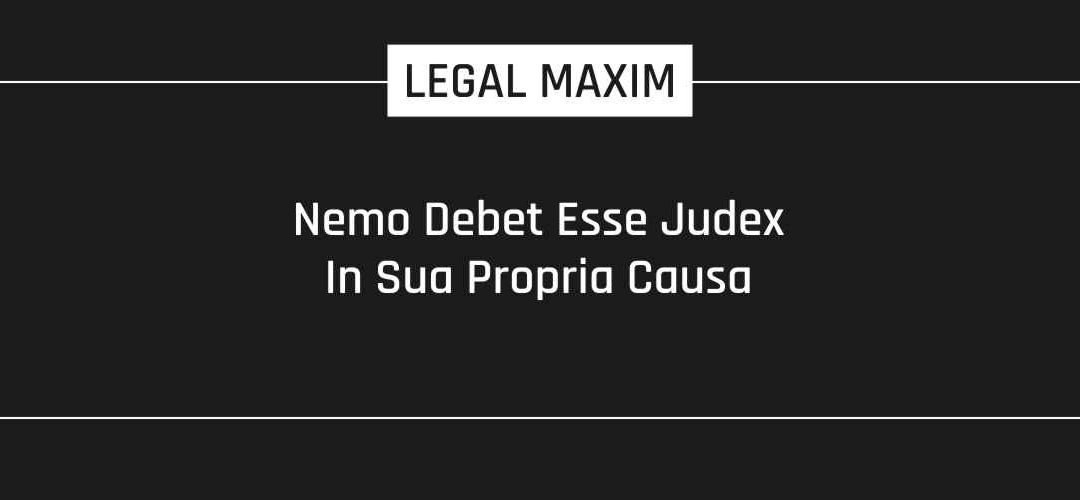Literal Meaning
No one ought to be a judge in his or her own cause.
Origin
Latin
Explanation
It is the principle of Natural Justice. According to this maxim, the authority giving decision must be composed of impartial persons and should act fairly, without prejudice and bias. It is a fundamental concept in the administration of law to exercise justice and fair hearing. The term natural justice can also be titled as ‘fundamental justice’ or ‘substantial justice.’ In simple words, fair hearing implies that no man shall be condemned by the authorities without being heard on the case. The principle refers to the fact that no one will act as a judge in his case. The objective of this rule is to ensure public confidence in the impartiality of the administrative adjudicatory process. In general, the maxim refers that justice should not only be done but also manifestly and undoubtedly seen to be done.
Types of bias:
- Personal Bias – This kind of bias may arise out of friendship, relationship, professional grievance or even enmity. In such circumstances, it is difficult to prove the state of mind of a person. Therefore, it is mandatory to prove that a reasonable ground has been established to believe that he has acted biased.
- Pecuniary Bias – Nonetheless, it is evident that the decision of adjudicator would be affected if he has a pecuniary interest in the subject matter of the proceedings. Any direct financial interest, however small, in the matter in dispute, in which he is financially interested may operate as a bar to adjudicating and it disqualifies the person from adjudicating.
- Official or Subject matter bias – When a situation arises in which a judge possesses a general interest in the subject matter of dispute, it is referred to as official or subject matter bias. However, it is to be noted that a mere general interest in the general object to be pursued would not disqualify a judge from deciding the matter. There must be a direct connection with litigation.
Illustration
A files a suit against B which has been scheduled to hearing before judge C. After all the arguments and hearing the judge C passed an order in favor of B. However, it was found later that C was an acquaintance of B. Thus, it can be held that the decision of C must have composed of partial persons and should act fairly.
Case Laws
In T. Govindaraja Mudaliar v. the State of T.N, the government decided in principle to nationalize road transport and appointed a committee in which Home Secretary was made a member to frame the scheme. Later on, the scheme of nationalization was published and objections were heard by the Home Secretary. It was contended that the hearing was vitiated by the rule against bias because the Secretary had already made up his mind on the question of nationalization as he was a member of the committee which took this policy decision. The Supreme Court rejected the challenge on the ground that the Secretary as a member of the committee did not finally determine any issue as to foreclose his mind. He simply helped the government in framing the scheme.
Further, in Kondala Rao v. APSRTC, the court did not quash the nationalization of the road transport order of the Minister who had heard the objections of private operators on the ground that the same Minister had presided over a meeting only a few days earlier in which nationalization was favored. The court rejected the contention on the ground that the decision of the committee was not final and irrevocable but merely a policy decision.

Yes..rights
The supreme court issued legislation like 15 guidelines in madhuri patil in 1994 SCC (6) 241 for (a) issuing caste certificates, (2) making their verification and (3) taking action their after. The court does not have any power and not the authority to issue guideline. It not the action of issuing guidelines a matter oe judicial bias?